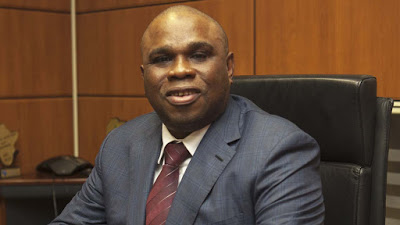After 25 years of operations that kicked off in Abuja, the African
Export-Import Bank (Afreximbank) said it has mobilised no fewer than $65
billion worth of loan syndications for trade financing and the
development of the continent’s economies.
largest multilateral lender, has received about 40 per cent of the
bank’s interventions, covering public investments and private sector
working capital, particularly, the banks.
battling with financing challenges, the question of what it would have
been like for the continent, without the emergence of the bank remains
at large.
trade finance gap that needs to be closed; yearly $93 billion trade
infrastructure gap; and a global trade share at three per cent, that
needs to be raised; while Intra-African trade is still far below
aspirations.At the weekend, during the yearly meetings of Afreximbank,
part of the $65 billion syndications was injected further into Nigeria’s
economy, as the Bank of Industry signed for a $750 million facility for
on lending to small businesses.
an oil refinery project in Lekki, Nigeria, on a seven-year term loan,
with five years moratorium.The government received a provision of $1.8
billion to support the economy during the recent oil price shock between
2015 and 2016, while a provision of liquidity and trade finance lines
of more than $800 million was made during the banking consolidation when
many international banks cut credit lines to the country.
development of testing and inspection centres across the country in
collaboration with the Standards Organization of Nigeria; and
establishment of a Centre of Excellence for Tertiary Healthcare/Medical
Park.There is ongoing talks to participate in the Nigeria SEZ Investment
Company Limited being promoted by the government; the support for
industrial projects through loans to strategic banks; provision of trade
and letter of credit lines to all Nigerian banks, in close coordination
with Central Bank of Nigeria; and development of an Afreximbank Africa
Trade Centre in Abuja.
emergence of the bank was in reaction to challenge by an unprecedented
debt crisis that ravaged the continent like a plague those days and as a
child of necessity, was conceived for Africa and by Africans and now
effectively delivered by Africans.So far, the bank has provided over $50
billion, granted in support of trade and project activities across
Africa, supported the emergence of world class hotels across the
continent, including upscaling facilities in Island economies like Cape
Verde and Seychelles.
aggregate of about $4 billion to avert hunger and support critical
businesses when virtually all international banks cut off the
country.“Who would today have stepped in to provide trade services lines
in excess of 4 billion to about 500 banks across Africa so that no
country can be denied access to trade finance as a result of high
compliance cost?
leveraging close to $3 billion in support of African airline
operations?“How would some indigenous Nigerian entities have been able
to acquire oil production acreages if the Bank had not stand by
them?“Who would have financed the creation of at least 130 thousand
metric tonnes of cocoa processing capacity in Cote d’Ivoire and revived
processing plants in other major producing countries, namely Ghana and
Nigeria?“Who would have provided $9 billion to a number of African
central banks and commercial banks at the height of the commodity price
induced crises of 2014-16?” he queried.Oramah said Afreximbank is
powering the Collective Will of the Continent to boost intra-regional
trade and export manufacturing and now about to launch a pan-African
payment and settlement platform in support of intra-African trade.
of improved access to finance as a result of the bank’s efforts to
promote factoring, such that from almost nothing, Africa can today boast
of 32 factoring companies sharing in near trillion dollar global
market.President Muhammadu Buhari, while declaring open the bank’s
yearly meetings, in Abuja, at the weekend, commended Afreximbank’s
strategy in the continent through its dynamism and tenacious leadership,
saying the lender had proved that Africans could come together to build
something meaningful.
had enabled the bank to record the successes so far since its
establishment 25 years ago.He noted that the bank’s efforts to integrate
Africa through its African Continental Free Trade Area (AfCFTA), is
already undergoing a careful review, with several consultations to get
the inputs of the nation’s diversed professionals, entrepreneurs and
investors.





